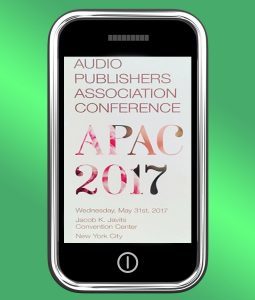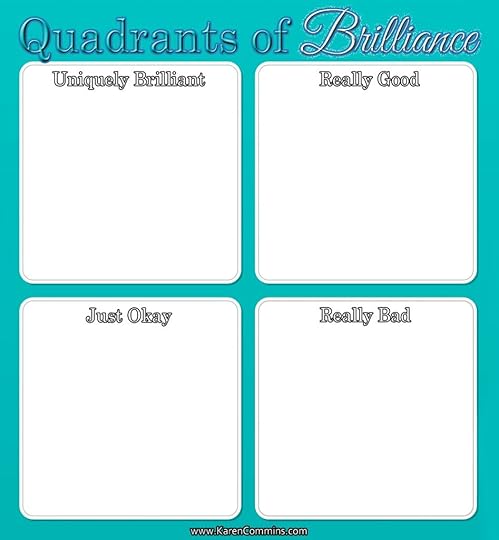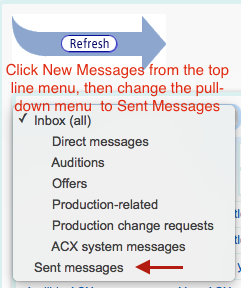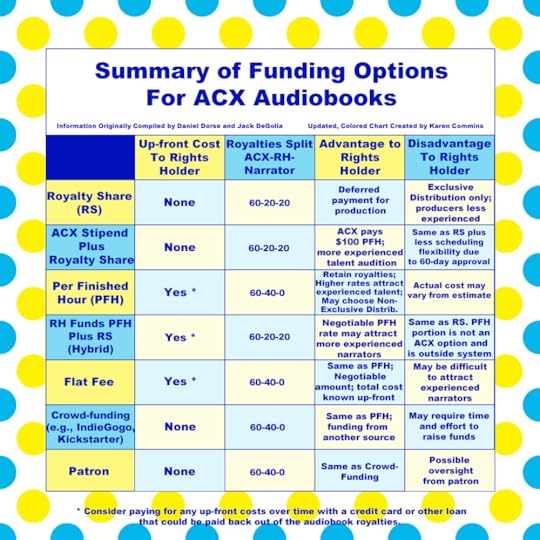Karen Commins's Blog, page 8
June 6, 2017
Mailbag: 6 Questions About Audio Publishing
After reading my article How I Started My Audiobook Publishing Company, a couple of people recently wrote to me with questions about the process. With their permission, I am answering their questions here so more people can benefit from and join in the discussion.
Before you read further, I should state that I’m not a lawyer. I offer advice based on my experience in the audiobook industry, but anyone considering starting a publishing company may need to consult with an attorney.

Telisha’s Questions:
1. Does ACX accept copyright audiobooks without the author’s consent in the example of an economy book that has been in publication for 20 years and has a new edition every year which comes out and has never had an audio version. I would love to do it. From reading your article, I would hate to have this idea usurped as the authors did in your experience.
In order to publish an audiobook, the text must either be in the public domain, or you must have the audio rights to publish it. Authors own the audio rights to their work unless and until they assign the rights to another party. Many publishers include audio rights as part of a publishing contract for the work.
This chart shows you copyright term and the public domain in the US. The terms vary for other countries; for example, this page has info about copyright in the UK.
If the work is in the public domain, anyone can use it for whatever purpose they like. As an example, I discovered 2 related books were in the public domain, and neither had ever been recorded. I edited both books together so they followed a consistent timeline. The result was an original, derivative work for which I now hold the copyright: Bly vs Bisland: Beating Phileas Fogg in a Race Around The World. I created the Kindle book and produced and co-narrated the audiobook.
 Bly vs Bisland is one of my all-time favorite projects!
Bly vs Bisland is one of my all-time favorite projects!If the copyright is still valid on the book, you must do research to determine who holds the audio rights. It could be the author, the author’s literary agent, or a traditional publisher.
When using ACX.com to distribute the audiobook, you must first be able to claim an edition on Amazon. It doesn’t matter whether the edition is Kindle, paperback, or hardback. My article linked above gives the steps and additional info about claiming the Amazon edition when you are using a text in the public domain. The ACX process is much simpler for claiming titles still in copyright and would start with step 6 and skip step 7 in my article.
Not knowing or being able to find the rights holder does not give one permission to record and publish the audiobook! Copyright infringement can be a serious and costly mistake.
Which leads us to the next question…
2. How do you find out who holds the Rights on a book currently in print? Can you negotiate to buy the audio rights? Is there a better way to buy the audio rights to a book currently in print?
The research on rights can start with how the book came to your attention. If you know the author, you can ask her whether she still has the audio rights to a book.
If the work is traditionally published, you can contact the Subsidiary Rights department of the publisher. Otherwise, you need to become a detective or hire a researcher.
Once you find the rights holder, you can negotiate with that party to license the audio rights.
In August 2016, I hosted a webinar with Jessica Kaye, a Grammy-winning audiobook producer/director of over 500 titles, founder of long-time audiobook distributor Big Happy Family Audio, and intellectual property attorney at Kaye & Mills. Before the webinar, I compiled a list of links to aid in researching the rights holder and distributing the finished audiobook. In the 1.5 hours of the webinar, I asked Jessica how to structure the deal and specific questions about the budget for licensing. You can buy a copy of the recording and receive my exclusive list of links for $49 on my Shop page.
3. What production and payment options did you choose and why? I read up on the ACX website, but wanted to get your perspective as a seasoned business owner and narrator.
ACX forces one to select non-exclusive distribution when publishing an audiobook from a public domain text. The royalty rate is currently 25% of earnings, paid each month.
With Bly vs Bisland, I could have chosen exclusive distribution since it is an original work. Exclusive distribution gives you a 40% royalty rate, but you’re only allowed to sell the book on Audible, Amazon, and iTunes throughout the contract period. I chose non-exclusive distribution for it as well since I’d also like it to be available in libraries and places like the NY Historical Society Museum.
I’m currently producing and narrating a text for which I negotiated and licensed the audio rights. I haven’t decided if I want to distribute through ACX or another venue. If I do go through ACX, I’m leaning toward exclusive distribution for the first year to maximize the royalties paid. Like print editions, the interest in an audiobook is highest during its first year.
After the first year, section 12(A) of the ACX Book Posting Agreement states that you can write to Audible to request a change to non-exclusive distribution for titles produced under the pay-for-production model. The distribution cannot be changed for books created under a royalty share (RS) contract. As both the audio rights holder and narrator, I wouldn’t enter into an RS agreement with myself. 
May 31, 2017
Recaps From 5 APAC 2017 Sessions

Each year, the Audio Publishers Association hosts an informative conference for its members. I was unable to attend this year due to family concerns. However, thanks to the many tweets from ACX.com and other participants today, I almost feel like was there!
Using Storify, I chronologically sorted all of the #APAC2017 tweets about these 5 sessions of interest to audiobook narrators:
APAC 2017 Keynote with Tom Webster + Bonus Content
Getting to the Next Level
Marketing Techniques
Ask A Casting Director
Building Your Brand
Technology is such a wonderful thing! 
May 12, 2017
3 Reasons Authors Shy Away From Audiobooks
It was exciting to attend the RT Booklovers’ Convention here in Atlanta last week with over 25 of my fellow audiobook narrators from across the country. Several members of the group organized and participated on educational panels about audiobooks, and we all contributed for a booth in the Bazaar.
 The Romance Narrators’ RT Bazaar booth was feast for the eyes and a smorgasbord of swag!
The Romance Narrators’ RT Bazaar booth was feast for the eyes and a smorgasbord of swag!In talking with people who came to our booth, I noticed 3 reasons authors shy away from audiobooks.
1) Authors aren’t sure about consumer demand for audiobooks.
One person who never listens to audiobooks asked me the average price for one. When I said it might be $15-$20, the astonished reply was, “for a BOOK?” I explained that many options exist that enable listeners to acquire audiobooks at cheaper prices, including free ones at the library.
More importantly, an audiobook isn’t just a book. It is its own performance art.
You could look at it this way: you could spend $15 for a movie ticket that gets you about two hours of entertainment. You don’t own that entertainment and can’t enjoy it again without paying the additional money. With an audiobook, though, you could pay the same or less amount of money for 6, 10, or more hours of entertainment that you’d be able to revisit as often as you like.
Audiobooks are a $1.2 billion industry that has experienced double digit growth for the past 2 years. That trend isn’t likely to stop anytime soon. Both production and consumer costs have come down dramatically as technology has streamlined the process.
2) Authors aren’t already audiobook fans.
A few authors told me that they don’t have a commute and therefore didn’t have time to listen. I know I sure appreciated hearing a good book last week while I sat in abysmal Atlanta traffic going to and from the convention.
While audiobooks are popular companions during commutes, you don’t need to travel to listen to an audiobook. I listen every day while walking my dog. I also listen on the treadmill and while swimming. Audiobooks complement almost any form of exercise! I’ve also been known to listen while eating my lunch. You could listen while you’re in the shower. In fact, there’s no end to the variety of things you could do and hear a great book at the same time.
Once you start listening, not only will you get through more books each year, but you may also start planning your own audiobook. You’ll find that writing for audio will make you a better writer.
3) Audiobook production is too complicated.
Some authors were very interested in creating audiobooks but don’t have the time to learn how to do it. The good news is that you don’t have to spend time and energy to figure it out! The narrators who attended the RT Convention have our own studios and are experienced in working with authors to create independent audiobooks. We know how to get an audiobook done through ACX and other distributors, and we would be more than happy to assist authors with the steps.
You’ll find samples and contact information for over 30 professional narrators on the boutique site RomanceNarrators.com. Don’t worry if you don’t write romance. Most narrators work in a variety of genres.
I hope I’ve gotten you thinking differently about audiobooks and that you’ll soon contact me or one of my fellow narrators about starting production.
The post 3 Reasons Authors Shy Away From Audiobooks appeared first on Karen Commins.
April 18, 2017
Outsourcing From a Narrator’s Perspective
In 2013, I heard client attraction specialist Fabienne Frederickson talk about determining your “Quadrants of Brilliance”. It’s a thought-provoking and highly revealing exercise that requires some reflection about those things in your business that you like and excel at doing versus things that you don’t enjoy and/or don’t do too well.

Basically, you divide a landscape sheet of paper into 4 boxes by drawing 2 perpendicular lines in the center of the sheet. You fill in each section with your assessment of how well you do the tasks involved with your business.
As you can see in this video, she explains that your goal is to focus your time and energy in those areas that make money for your business and delegate the rest.
Here are some of my notes about doing this analysis:
If you sharpen the saw and strengthen the strengths, you become untouchable.
Stop trying to strengthen your weaknesses. Focus only on your unique brilliance.
The uniquely brilliant stuff comes naturally, and you could do it all day for free.
The “really good at” quadrant are things that if you had to do them 2 days in a row, you’d be resentful. You get tired by the end of the day, even though people recognize you for being good at these tasks. You just don’t have that much passion for them.
You can only be great at 4-5 things in your business, and 80% of your revenue comes from your quadrant of unique brilliance.
If you do the things in your 2 bottom quadrants, you’re not making any money. Delegating them creates more time for you to do the things where you have unique brilliance.
This article offers more details.
I encourage you to do this exercise to determine — and capitalize on — your areas of unique brilliance.
I was thinking about this activity and its tremendous positive effect on my business after reading several of Karen Souer’s excellent articles in her series about the 5Ws of Outsourcing. Karen and I met in 2011 at Faffcon 2 here in Atlanta. She was starting a new business as a virtual assistant to voice talents. We had a wonderful conversation, and I was impressed with her sharp mind, deep listening skills, and solution-driven nature. It’s no surprise to me that she is in demand as an audiobook editor.
After doing the Quadrants of Brilliance exercise, I made some major changes in my business plan. One of the biggest changes was outsourcing tasks whenever possible. I suggested to Karen that it might help other narrators if we each wrote about how a narrator can use outsourcing to strengthen one’s business. Karen’s article gives you the perspective from the contract freelancer.
Possible Tasks
I rankled at using Fabienne’s labels of “just okay” and “really bad” to describe my lower 2 quadrants. In fact, I wrote beside one of my tasks that I listed in the “really bad” quadrant: I’m good at it but have no desire to do it.
That sentence is the key! Even if you are good at doing something, is it the best use of your time to actually DO it? Will it make money for you? Or — and this scenario happens all too frequently — will it waste time that you could have spent in an income-producing endeavor?
I didn’t immediately outsource anything. Instead, I started keeping notes in Evernote about things I do, as well as things I wanted to do but never seemed to get to. Since I’m notorious for planning too many projects in the time allowed, I also documented how long it took me to do each activity.
Audiobook Editing and Proof Listening
It was immediately evident to me that audiobook editing was the first and most necessary task to delegate. I realized that in the time it took me to edit an audiobook, I could’ve narrated another one. No one pays me to edit. They pay me to narrate.
One of my pet peeves as an audiobook listener is mouth noise, particularly clicks. Since I am meticulous about removing those clicks, it was important for me to find an editor who also made it their mission to eliminate them.
I contacted several people and asked them to edit a 5-minute selection. In addition to the click removal, I listened for how they adjusted the pacing. If all of the spaces between sentences are the same length, it sounds robotic and loses any dramatic pauses I had intended in the read. I also paid attention to how they mastered it to assure that the finished product sounded really good to me.
I advise you to only hire audio editors who are experienced with audiobooks, which have their own sonic demands. I’ve found that editors who are only experienced with music may do too much or too little processing on your voice.
Even if my book is under a royalty share contract, I still hand off the editing and proofing to someone else. Yes, doing so puts me temporarily in the red, but the value is in the time I free up and the improved quality in my finished product. If you’re unsure how you could afford a freelancer for any outsourced assignment, this article will help you figure it out.
When I edited my audiobooks, I also proof-listened to assure word-for-word accuracy with the text. It’s really better if another person than the narrator performs that task. If you made a mistake in narrating, you have a good chance of missing the same mistake when you edit your own work.
If you’re looking for an experienced audiobook editor and/or proofer, you’ll find plenty of qualified candidates on this spreadsheet.
Members of the Audio Publishers Association (APA) who are considering outsourcing their post-production could attend the webinar on 27 April on this very topic. Details and registration are on the APA’s home page.
Administrative and Promotional Duties
Once I established a routine with an editor, the next big group of items prime for delegation centered around administrative and promotional duties. I wanted help in publicizing my audiobooks, starting and maintaining a newsletter, finding and fixing bad links and formatting on my blog caused by 2 conversions, etc.
I wrote this Virtual Assistant Statement of Work and posted a note in my neighborhood email list with the hope of attracting a college student or stay-at-home mom to work with me for $15/hour. I thought it would be helpful for my assistant to be local so I could show them my processes in person rather than explaining everything on Skype. I received several responses from great candidates. I held interviews using these questions:
Have you done any research about my business? Do you listen to audiobooks?
Tell me about your current job, school, and other commitments.
How do you rate your proficiency level with Word and Excel?
What other software do you know well?
How do you prioritize and schedule your work?
Why do you want this job?
What kind of turn-around time could I expect?
Are you willing to sign a non-disclosure/non-competition agreement?
What payment forms do you accept? (PayPal, check)
How often do you expect to be paid?
What questions do you have for me?
Although I was thrilled with the person I hired, our association was short-lived due to a change in her schedule. However, her departure turned out to be a blessing for me because my husband Drew volunteered to fulfill my audiobook giveaways and do all of the maintenance required on my web site! Sometimes a family member may be willing, able, and available to help you if you ask them.
With him taking over those items, I turned my attention to some one-of activities. For instance, I wanted to transcribe my webinar on audio rights and some interviews I’ve done so that I could re-purpose content into another form. I used to be a much faster typist and even worked as a transcriptionist in my younger years. However, I soon found that it would take me HOURS to transcribe the 90-minute webinar.
Typing is definitely in my bottom right quadrant, so it was an easy decision to hire someone else to do that job! I posted an job listing on Upwork.com and was very pleased with the ease of use of the site and quality of applicants. Upwork has certification tests in various categories, including spelling and grammar. The freelancers on the site take the tests, and the scores become part of their profile, which aids in the selection process.
As you can tell from these examples, I enlist aid as much as possible in order to spend more time in my quadrant of brilliance! Do you outsource any parts of your business? Please leave your comments and questions on the blog.
The post Outsourcing From a Narrator’s Perspective appeared first on Karen Commins.
March 26, 2017
7 Players on Your Audiobook Production Team

Since many indie authors and smaller publishers are new to the world of audiobooks, I thought you might like to have a quick overview of the 7 players on an audiobook production team:
1. Rights Holder
2. Producer
3. Director
4. Narrator
5. Sound Engineer
6. Audio Editor
7. Proof Listener
One person may be responsible for several phases of the process. For instance, on ACX.com, Audible’s marketplace connecting rights holders with narrators, I’m the audiobook producer in addition to being the narrator.
My husband Drew serves as both the director and sound engineer in all of my recording sessions. Most narrators working in their own studios don’t have the luxury of a second set of ears listening as they record. When I’m the producer, I hire the audio editor and proof listener, so all aspects of production are included in my fee.
1. The Rights Holder owns the audio rights to the text. This person may be the author, a literary agent, an estate attorney, or a publisher. In some cases, the book may be in the public domain, meaning that anyone may use it for any purpose they wish without compensating the author.
2. The Producer is the audiobook project manager. She sets the schedule for completion and may contract with a studio for recording time and a sound engineer. In audio production companies, the producer also listens to actors to cast a voice that works with the story and hires the rest of the team needed to create the audiobook.
3. The Director helps shape the performance. He is familiar with the story arc and assists the narrator in choosing character voices and an acting style that serves the book.
As the narrator speaks the words, the director is closely following the text along with her and offering spontaneous feedback and coaching to improve her performance. In addition to detecting mis-reads, the director will tell the narrator if her character voices are inconsistent or she isn’t emotionally connected to the author’s words. It’s more efficient to fix such problems at the moment they occur rather than re-do them later as a correction.
4. The Narrator is the recording artist who performs every word in the book out loud in front of the microphone. Before recording, the narrator has already read the book at least once and made notes to understand the premise, the characters, and the all-important subtext. The best narrators do not merely speak the words; they inhabit the characters’ minds and take the listener on a journey.
5. The Sound Engineer manages the technical side of the recording sessions. He chooses the microphone and sets the volume. He runs the hardware and software controls to ensure that the equipment and digital audio workstation (DAW) software are picking up the clean signal from the mic. If the narrator makes a mistake and must re-record a sentence, the engineer restarts the software and cues the narrator for her entrance.
6. The Audio Editor perfects the recordings. She listens to every word in the recorded files and makes adjustments for pacing. For instance, she might add dead air to a pause to make it more dramatic. She also listens for and removes disruptive mouth noises and gaspy breaths. After she inserts any corrected recordings from the narrator into the original files, she processes all of the audio files in the book so that the finished sound is uniform and pleasing to the ear.
7. The Proof Listener is the last person to hear the recorded book before it becomes a retail product. She listens to the entire book while looking at the manuscript. As she detects any misreads or other errors, she marks these corrections so the narrator can re-record them.
As I mentioned previously, the production roles may overlap, such as:
Producer/Director
Director/Sound Engineer
Sound Engineer/Audio Editor/Proof Listener
The rights holder may also act as producer and/or proof listener. However, the rights holder usually does not act as the director, instead leaving all aspects of the recording process to the professionals hired for the task.
Given this summary of the 7 players on an audiobook production team, you can better appreciate the time and skills needed to create the audiobook edition of a book. In my next article for authors, I’ll look at the 12 steps in producing an audiobook using ACX.com.
In the meantime, please let me know your questions about audiobooks or the production process by leaving a comment below.
The post 7 Players on Your Audiobook Production Team appeared first on Karen Commins.
March 16, 2017
4 Keys to Becoming a Successful ACX Audiobook Producer
One of my friends is a well-established and highly successful audiobook narrator with years of experience working in commercial studios for traditional publishers. For the longest time, he had absolutely zero interest in setting up a studio and recording at home, largely because he is not comfortable with technology.
I often talked with him about the many merits of using ACX, including the:
ease of finding interesting books on the site and auditioning to narrate them
ability to work directly with authors and fill holes in his recording schedule
excitement (and sometimes need!) to earn passive income each month from carefully selected Royalty Share projects
possibility of creating his own publishing company and performing titles of his choice in his spare time
Futhermore, traditional publishers are increasingly employing narrators who are experienced in home recording.
Once he was finally convinced that establishing a home recording studio would be an empowering career move on all levels, he decided to create one and asked many questions while implementing his plan.
The thought occurred to me that anyone who is new to home recording and working through ACX might benefit from the 4 key areas of practical advice and information that I gave to my friend about becoming a successful ACX producer.

Key #1: Recording Software
We first talked about his choice of computer system and Digital Audio Workstation (DAW) software. He initially wanted to buy a proprietary, self-contained system so he wouldn’t have to learn how to use recording software. However, I explained that he should choose software that a lot of his peers are also using so that he could easily get training and support.
He researched the needs of his current clients and learned that one of his main publishers uses Pro Tools. For that reason, he decided that he would use it, too.
Your software choice may not seem so clear-cut. This article on the ACX blog about the most popular software choices will give you pros and cons of several DAWs to help you make your decision.
Before you undertake an ACX project, you need to learn how to use your recording software, at least to the bare minimum capabilities of recording, saving, and exporting your files. I highly recommend you purchase the 2 excellent webinars about audiobook recording and mastering that studio engineer George Whittam and ACX engineer Charles Clerke taught for ACX users through for VoiceOverXtra.com.
While they aren’t audiobook specific, I also suggest you look at the extensive video courses on DAWs and other useful topics offered by Lynda.com. Lynda courses are much thorough and come with a transcript and materials. You can preview the Pro Tools 12 Essential Training at this link, but classes on every popular DAW are available. You pay for the service monthly, can take as many courses as you want, and can cancel at any time. In addition to courses on DAWs, Lynda offers loads of classes in marketing, social media, web site design, and other topics useful to your audiobook business.
On a related note, I want to add that on-going training in audiobook performance is essential throughout your career as a narrator. Again, on-line offerings are numerous, affordable, and invaluable. For instance, VoiceOverXtra offers webinar replays on audiobook performance from director Paul Ruben and narrator Sean Pratt . As another example, narrator and coach Pat Fraley and narrator Scott Brick have created a number of home study courses designed expressly for audiobook narrators.
Key #2: Work Habits
After he completed his software training, I told my friend that he should establish good practices and habits in his home studio to make his workflow compatible with those of traditional audiobook publishers.
One of the most important things a narrator can do to streamline the recording process is to learn the recording technique called punch and roll.
In this terrific explainer video, audio engineers Don Baarns and Amanda Rose Smith demonstrate the punch and roll technique and discuss why a narrator should use it. The punch and roll method dramatically decreases the editing time because all of the mistakes are removed at the time of recording. The full audiobook is completely assembled at the end of the recording sessions.
Traditional audio publishers complete recording of the book before editing it. That way, if you want to change something earlier in the book, it won’t be edited twice.
New narrators will learn a lot about their narration ability and sound quality by listening to their own voice while editing their audio files. Due to his busy recording schedule, my friend could not edit anything longer than an audition.
Since you could narrate another book during the time one book is edited, I recommend that every narrator outsource your narration for editing and proofing as soon as possible. You can ask your narrator friends for editor recommendations or contact people who listed their services and rates on this spreadsheet, which was created on Facebook in response to narrators’ frequent requests for assistance. ACX encourages you to use one of the ACX Independent Contractor Agreement forms for your contract.
Whether you are working with an editor or editing your audio and creating your files, you need to establish a file naming convention for your recordings. The exact format for the naming convention doesn’t matter as long as the names are consistent and clear, with the section number first, followed by the section name. It’s a good idea to include some form of the book title in the section name. Otherwise, it would be easy to mix up files between books.
Traditional audio publishers complete recording of the book before editing it. You will want to edit the complete audiobook before uploading the finished chapters to ACX. After the rights holder (RH) has approved the first 15 minutes, they should not be allowed to guide the work in progress.
Which brings me to my next point…
Key #3: Communication
Audiobook narration is a unique performance art that is based on the narrator’s interpretation of the author’s words. The actor’s job is to make choices throughout the performance. Those choices frequently will not match the choices the RH would make. Therefore, it’s vitally important to set expectations at the outset.
Unless the RH is willing to pay per real-time hour to direct you through every second of the entire full performance, you should clearly communicate the types of revisions you’ll accept at project completion, namely technical errors on your part like mispronunciations or misreads.
Colin Firth beautifully expresses this idea in this video clip.
Otherwise, some RHs tend to micromanage the process and will send copious notes like a Monday-morning quarterback analyzing the big game. Since my audiobooks are edited and proofed by someone else, the RHs rarely have found any issues or requested any changes.
Even though my friend was already an exceptional communicator, he felt a bit overwhelmed in learning the ACX process. Before we tackled offers and contracts, I explained that the ACX message system is the official record of correspondence. For your protection, you should use the ACX message system to confirm all details with rights holders.
However, the ACX message sometimes does NOT send your message!
Rather than risking the loss of your note, I suggest that you first write your message in your personal email program or text editor and then copy and paste it into the ACX message system. This way, if the ACX system doesn’t send the message, you don’t have to re-type it.
The ACX system should display “Message Sent” on your screen if the transaction was successful. You can also check the Sent messages in your ACX Message Center as shown in the picture. If you don’t find your message in the Sent folder, you’ll need to re-send it.

In addition, you are free to communicate with the rights holder outside of ACX. I usually exchange personal email addresses and communicate that way as the ACX message center does not work well on an iOS device.
You can and should negotiate the rate and due dates of any production before accepting an offer. I also explain my payment terms and invoice schedule at that time so the rights holder has no surprises.
After conferring with the rights holder about my availability and the amount of time needed for the production, I schedule the dates with my editor and notify the RH of the due dates.
Once you and the rights holder agree on the payment and schedule, you can accept the offer. Be aware that any schedule deviations during production can’t be changed on-site and should be noted in email. On non-stipend projects, there’s no need to inform ACX, though. As long as you and the rights holder are on the same page, ACX is satisfied.
If you’ve been cast to narrate a royalty share book with an ACX Production Stipend attached, you should be aware that you must complete the production and the RH must APPROVE the audiobook no later than day 60 following the contract acceptance date. You’ll want to ensure that your rights holder is aware of this fact as well.
The 60-day clock for stipends starts ticking on the day you accept the contract for the book. For this reason, I do 2 more things for stipend books:
Tell the RH the date to send the offer.
Set the audiobook due date no later than 45 days past the contract acceptance date to allow time for the RH to listen to the book and for me to do any necessary corrections.
I use this calendar calculator to determine due dates, especially the 45th and 60th days on stipend projects.
After I accept a project, I remind the RH of the dates to finish their review and approve the book so they can put the dates on their calendar.
Note: ACX may be in the process of phasing out the Stipend program as they have awarded stipends to very few titles in recent months. You can still follow steps 1 and 2 above for all projects to better manage your workload.
Key #4: Paperwork
No job is finished until the paperwork is done! Much of an ACX producer’s paperwork revolves around payment and tax issues.
You’ll need to invoice the rights holder for a “pay-for-production” project. For Stipend projects, the stipend is paid by ACX, so follow the directions and use the invoice template found here.
If you’re a member of the SAG/AFTRA union, you can request that contributions are made on your behalf to your health and retirement fund on qualifying projects. The RH has to send your payment through the paymaster, and it’s up to you as the producer, not ACX, to provide the paymaster’s information to the rights holder.
You will need to request a completed IRS Form W-9 from each person on your team: editor, proofer, virtual assistant, etc. If your total payments to each contractor reach $600 in a year, you will use the information on the W-9 to send out an IRS Form 1099-Misc in January to that person so he can report your payment as income on his tax return.
You can get answers to many more questions in the ACX Help Center. You also may want to join the ACX Narrators & Producers Facebook group and read through its extensive FAQ that I created and maintain.
Finally, I welcome your comments and questions here on the ACX blog or through a personal consultation, available for purchase on my Shop page.
I’ve lost count of the number of audiobooks my friend has completed in his home studio, both for ACX rights holders and his regular publishers. By carefully choosing your software, adopting a streamlined work flow, communicating with rights holders and your team, and finishing your paperwork, you too will be on your way to becoming a successful ACX audiobook producer!
The post 4 Keys to Becoming a Successful ACX Audiobook Producer appeared first on Karen Commins.
March 14, 2017
This would be a new post for authors
I’m testing my new Mailchimp campaign that should automatically mail out a new post for authors.
It uses my RSS feed to populate the fields in the email template I designed.
I want to retain my subscribers as my site grows, so this is a good way to go.
Since the narrators got a picture of Barry Manilow, I decided to include a picture of the Eiffel Tower here.

This post will get deleted on 15 March after I see how the email looks.
The post This would be a new post for authors appeared first on Karen Commins.
This would be an article for narrators
I’m testing the WordPress to Mailchimp campaign for narrators.
The narrators’ category is checked on this post.
This post is not a good look for my front page, either!
Adding a picture of Barry Manilow for good measure.

Tomorrow, I’ll return to regular posts.
The post This would be an article for narrators appeared first on Karen Commins.
January 8, 2017
Interviews with me on other sites

To learn more about me, my narration, and audiobook production, please check out these interviews with me on other blogs:
Stacy Juba, author of Fooling Around With Cinderella
1/5/17 part 1 about me as a person
1/7/17 part 2 about the audiobook production process
Amy Metz, author of Murder & Mayhem in Goose Pimple Junction
10/14/16 part 1 about me as a person
10/20/16 part 2 about the audiobook production process
3/5/15 Wendy Pitts, fellow narrator Monthly Mentoring column
April Holgate audiobook listener/reviewer
12/30/15 update
12/28/14 original interview
The post Interviews with me on other sites appeared first on Karen Commins.
December 22, 2016
Karen Commins’s Audiobook Resources For Authors

The fantastic info found in this list of links will better prepare you for the task, especially if you plan to use Audible’s Audiobook Creation Exchange (ACX.com) for the production process.
If you feel overwhelmed about audiobook production, you may want to cut to the chase and hire an experienced narrator and producer.
Subscribe to the ACX blog and Karen Commins’s blog for on-going news and features about audiobooks.
The resources listed below were found on a variety of sites and are organized by topic.
Thinking About Audiobooks
Karen Commins’s Setting Sail Into Audiobooks video
In this 41-minute video, I:
explore the audiobook landscape (beginning at 2:43)
explain reasons every author should produce audiobooks of their books (beginning at 7:23)
demonstrate Amazon Whispersync capability between an audiobook and Kindle ebook (beginning at 10:19)
offer specific tips about ways to write with audio in mind (beginning at 12:09)
advise the viewer about the audiobook production process and gives concrete information about using ACX.com to create an audiobook, including payment for production costs and distribution options (beginning at 22:04)
Audiobooks: A Multitasker’s Best Friend
Authors: Want to Create Audiobooks of Your Books?
Audiobooks: The Next Big Thing
Hearing Voices: Why Audiobooks Are Suddenly Chic: RWA 2014 Handout/Resources
How Julianne MacLean Got Her Audio Rights Back
Going Further With Audiobooks: A Conversation with J. Daniel Sawyer
Writing With Audiobooks in Mind (Hint: You’ll Become a Better Writer!)
Some Thoughts on the Lost Art of Reading Aloud
ACX Guest Post: Wendy Lindstrom on Writing For Audio
The 6 People You Have to Be When Line Editing Your Novel
4 Ways Planning For Your Audiobook Can Make You a Better Writer
Advice, Articles, and Tutorials to Help You Get Started With ACX
Frequently Asked Questions About Audiobooks
Should Authors Narrate Their Own Audiobooks?
Why Authors Should (Almost) Never Read Their Own Audiobooks
How to Make an Audio Book Using ACX (Step-by-Step) best tutorial I’ve found — with screenshots
ACX 101 For Authors and Rights Holders – Part 1: Preparation
How to Win Listeners and Create Great Audiobooks
The ACX Author’s Audiobook Checklist
Karen Commins’s 2-part series:
Author Seeks Narrator: MUST Love Books
From Casting A Narrator to Happily Ever After
Two Ways to Estimate Your Word Count
What Authors Can Do For Narrators
5 Tips For Choosing a Narrator
How to Make Sure You Never Find a Narrator For Your Audiobook
How I Chose a Narrator For My Audiobook
How to Create an Audiobook PDF Companion Document for ACX, iBooks, and More
Payment Options and Narrators’ Views About Royalty Share Projects
Authors, Can You Afford to Produce an Audiobook?
Audiobook Options for Indie Authors (and when it’s worth paying for production yourself)
ACX Narrator rates & other things I’ve learned
Attracting the Right Narrator: Royalty Share vs. Per Finished Hour
Let’s talk about Royalty Share and Marketing
To voice Royalty-Share Audiobooks… or not. That is the question.
How to Pick the Right Royalty Share Project
7 Reasons Why Your Book is not Getting Auditions on ACX
How to Pay for Audiobook Production
Don’t be in a hurry to do your whole series at one time. Save the royalties from the first book to pay the costs of the 2nd one.
Use the creative exercise described in this article to uncover other sources of funds.
The chart below summarizes funding options for audiobooks created on ACX. Other companies do not offer royalty share option.

The Finished Audiobook
What Happens When Your Audiobook Ends Up Sounding A Lot Different Than Expected
Karen Commins’s 3:03 video demonstrating Whispersync technology
Audiobook Marketing
Karen Commins’s Audiobook Marketing Cheat Sheet
6 Low-Cost Avenues For Greater Audiobook Sales
The Elements of a Well-Reviewed Audiobook
How to Submit Your Audiobooks for Review in AudioFile Magazine
This Is The Reason Facebook Pages Are Still Useful For Authors
The post Karen Commins’s Audiobook Resources For Authors appeared first on Karen Commins.



